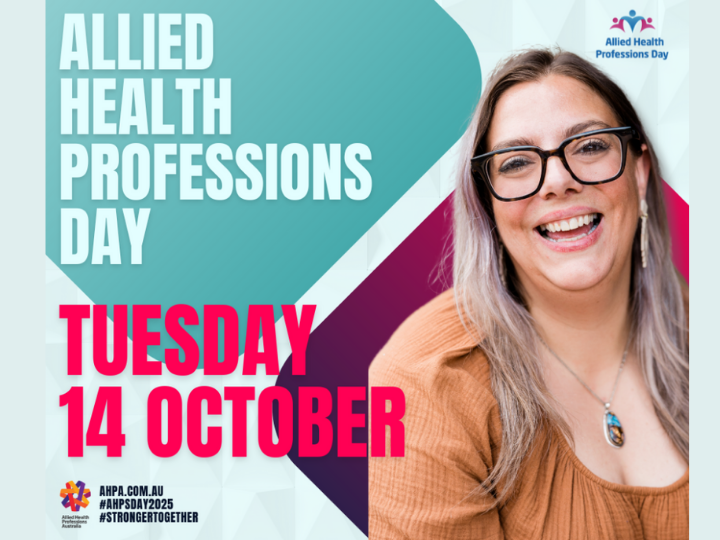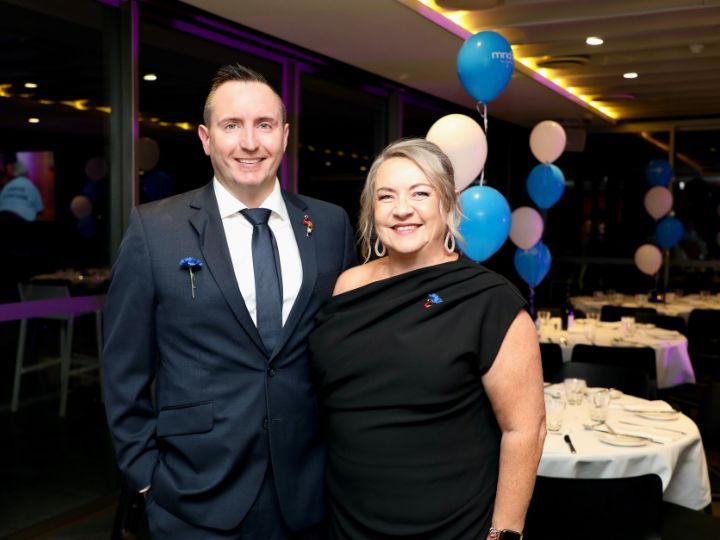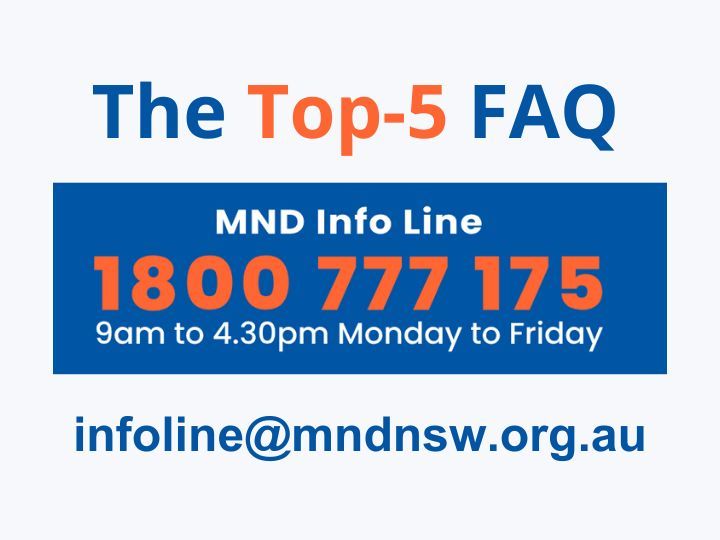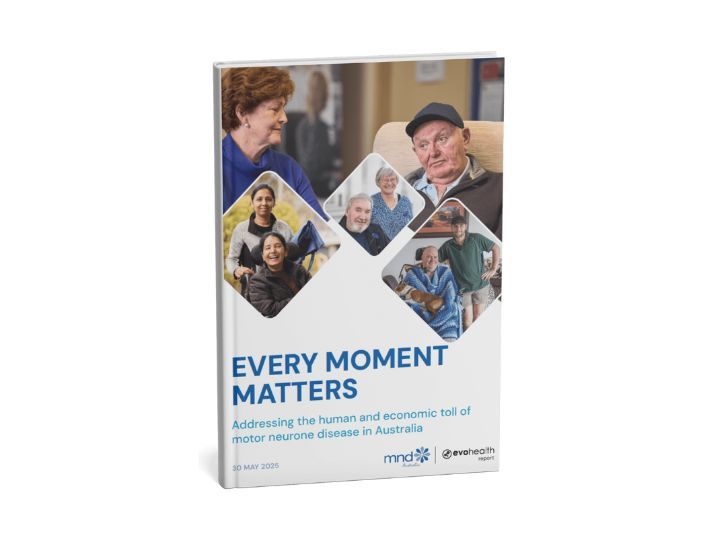Although there is no cure for Motor Neurone Disease (MND), supportive interventions are available. Allied health professionals are critical in providing support and improving the quality of life for people living with MND. We are recognising the role of allied health professionals in a multidisciplinary care team through two awareness days in October: Allied Health Professions Day and World Occupational Therapy Day.
What is multidisciplinary care?
Multidisciplinary care is a term used to describe coordinated input from a range of health and community care professionals aimed at providing person-centred care.[1]
Research shows that people living with MND greatly benefit from multidisciplinary care.[2] Some of the key benefits include:
- Better support and advice about symptom management
- Improve survival and health outcomes
- Early planning for future needs
- Improve overall quality of life
- Regular review of symptoms.
For people living with MND, there can be many different allied health professionals in a multidisciplinary care team. These can include but are not limited to:
- Physiotherapists for advice about pain management, physical activity, mobility, stretching, breathing, coughing and positioning
- Dietitians for dietary and nutritional advice
- Psychologists for emotional wellbeing and strategies
- Speech pathologists for advice about communication, swallowing and saliva management.
What is International Allied Health Professions Day?
Each year on 14 October, International Allied Health Professionals Day recognises the extraordinary contributions of allied health professionals across the world.
This year the theme is ‘Stronger together’. This highlights the benefits of coordinated, multidisciplinary care, especially for complex conditions such as MND.
What is World Occupational Therapy Day?
This year we are also highlighting the importance of occupational therapists (OT) as they are an important part of a multidisciplinary care team. For people living with MND, OTs are often a key member of their care team.
World Occupational Therapy Day is celebrated each year on 27 October and acknowledges the vital contribution that these health professionals provide.
How can an OT support people living with MND?
An OT can support people living with MND by advising about strategies and equipment to maintain independence, mobility, safety, and quality of life as their needs change. For example, an OT can:
- Assess how MND is affecting daily activities such as eating and dressing, and work with families and carers to make tasks safer
- Suggest strategies to conserve energy and reduce strain
- Recommend home modifications to improve accessibility
- Refer for equipment or assistive technology and provide training.
OTs can provide a referral for aids and equipment through MND NSW’s FlexEquip - Assistive Technology website. FlexEquip has a range of equipment to support a person with MND, including:
- Mobility aids – wheelchairs, walkers, and scooters.
- Daily living aids – pressure care and supportive seating.
- Home modifications –bathroom equipment, transfer aids, and hospital beds.
- Environmental controls.
Learn more:
- Multidisciplinary Care in MND: Factsheet | MND Australia
- Health Professional Support for MND | MND Australia
[1] Mitchell, G. K., Tieman, J. J. & Shelby-James, T. M. Multidisciplinary care planning and teamwork in primary care. Med. J. Aust. 188, S61-64 (2008).
[2] Van den Berg, J. P. et al. Multidisciplinary ALS care improves quality of life in patients with ALS. Neurology 65, 1264–1267 (2005).




